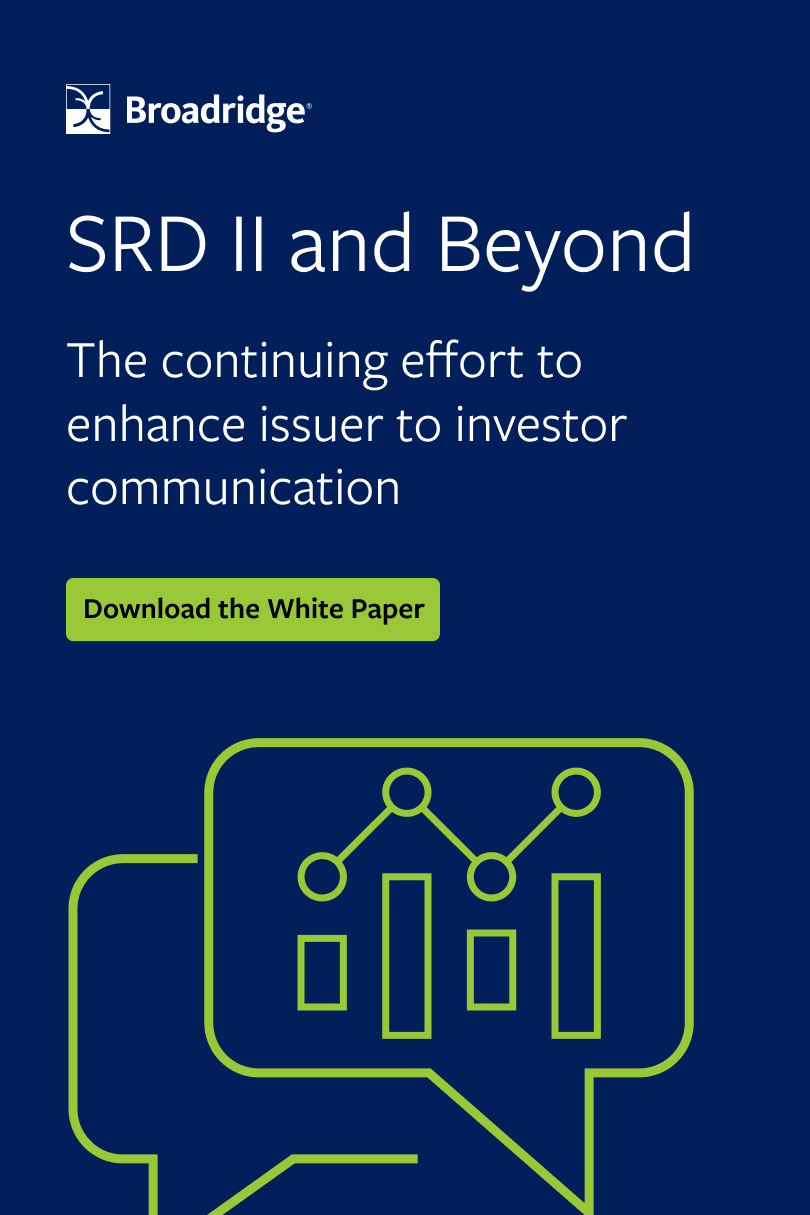Sometimes referred to as the “Rainbow Nation” for its multicultural diversity, South Africa has beautiful beaches, lush wine lands as well as forests and lagoons. In its financial services space, South Africa can also boast of its asset servicing growth, which has seen it become an established market in the last 20 to 30 years. Despite its successes, there is room for growth and opportunities to shine.
Indeed, industry experts have observed that the South African market has evolved to a full-service securities services market with providers offering custody and safekeeping, trustee services, securities lending, collateral management, cash management, foreign exchange and a range of reporting services.
Brian Anderson, managing director, SimCorp South Africa, notes that South Africa is a highly competitive landscape, where there has been the re-entry of ABSA (formerly Barclays Africa Group Limited), with its acquisition of the Société Générale business in the region. Anderson also observes bigger players looking to further consolidate their servicing to clients, with a more complete front-to-back view.
Anderson says: “The current industry in South Africa is under great margin pressure, at the same time it is undergoing a transitional phase, as many firms recognise the need to address a legacy of best of breed solutions and outdated systems.”
As well as this, in the third-party administration arena, Anderson notes the recent exit of international players such as J.P. Morgan and State street. “So it’s a truly dynamic time for the industry with many opportunities for growth and change. It is for this reason SimCorp has entered the South Africa market. Achieving scale, automation and multi-asset coverage in investment operations will be a big feature in making that growth happen and an area where we believe we can support significantly,” Anderson adds.
Echoing the idea that there is further room for growth, Fiona Green co-founder and director of Adapa Advisory comments: “In recent years, the demand for more sophisticated reporting solutions from the pensions sector combined with the ongoing demand for middle- and back-office outsourcing for investment managers, has led the way for banks to expand their offering and for the continued development of third-party fund administration.”
Meanwhile, from a client perspective, central securities depositories are in a position to structure solutions based on client demand. Green says that asset managers in particular who do not consider asset servicing core to their business are interested in a broader proposition focused on cost and efficiency gains.
“Coming off a strong base in South Africa, a number of providers have looked to the rest of the continent to meet growing client demand for regional capability both from domestic investors and to support inward bound flows,” Green affirms.
Enhancing business performance
In order for financial institutions in South Africa to enhance their business performance in the post-trade and securities services arena, enhanced technology and the digitalisation of processes could provide opportunities here.
Additionally, Green outlines that relationship reviews in the context of service level requirements, pricing, value-adds and risk reviews are steps to further enhance overall business performance.
Green highlights that the South African market is already competitively priced, which in turn has led to providers looking for real opportunities for efficiencies and new operating models.
“In recent years new market entrants in the depository and exchange environment have shifted the landscape and are important developments for clients and providers alike where the focus on costs, improved automation and the need for skilled resources are ongoing,” says Green.
She stipulates that all providers are focused on building their business either through product capability, geographic reach or both. In such an environment, Green stresses that it is very important that clients have a strong relationship with their providers.
Looking at how technology can offer these enhancements, SimCorp’s Anderson notes that there have been recent developments in the market with the ITaC initiative on the JSE, which has prompted technology refreshes in the derivative space and put a spotlight on internal projects.
Anderson says: “With this now completed there could be opportunities for outsourced bureau services or a consolidation of services that provide mainstream back-office processes. Here we believe there is a need for real-time data and digital processes that can enable more efficient settlements and improved service levels.”
According to Anderson, this could also lead to better accuracy and fewer reconciling items and time taken around error handling.
However, reaching this state comes with its challenges.
Anderson remarks: “With a legacy of best of breed solutions dominating asset servicing operations, achieving this efficiency is just not possible in the same way a consolidated platform can.”
New ways to adapt
The effect of industry change, financial pressure, new working practices and lifestyle operations has impacted operating models in South Africa.
The South African market can currently be characterised by a reduction in asset valuations with transaction volatility in line with other markets globally, according to Green.
She states: “Combined with rating agency downgrades and other economic factors organisations are potentially going to review their businesses in terms of core versus non-core operating requirements.”
From a provider point of view, Green says that the business needs to make economic sense therefore a broad product offering, with multi-market capability and a reputation for innovation is a buffer against such market volatility.
“In the current environment, this may be challenging for certain market participants. However you look at it, it is important for providers to have a long term strategy as it relates to client demand for complete solutions both domestically and internationally,” says Green.
Green adds: “Additionally, with the heightened focus on innovation and the rise of fintech as part of the fourth industrial revolution we are seeing leaders in the industry looking to participate in different ways which benefit the industry by bringing a diverse style of leadership which is agile and helps enable new business models and revenue streams. Such disruptors are key to transforming the market and economy.”
Aside from this, the global pandemic has caused disruption to a lot of markets across the globe, it has also forced many people to work from home. Anderson points out that if we look at the changes driven by a COVID-19 operating environment, work from home scenarios and operational efficiencies required to improve margin, will drive a review of the technology that asset servicers are using and require potential changes and investment.
Anderson says: “Cloud-based solutions will be better suited to deliver work from home demands but this will come with greater overhead around networks and related security both physical and data. At the same time, back-office platforms that deliver automated, multi-asset coverage and can be deployed across several lines of business, bringing cost optimisation in the servicing space. This will be a significant benefit with already lean resources, being more efficiently assigned to higher- value tasks.”
Pre- COVID-19, the biggest challenge has been margin pressures. Anderson highlights that this has been perpetuated by the backbone of regulatory requirements that are not necessarily seen as value-add services, but are necessary all the same to support clients with compliance.
Digitalisation will be a key opportunity here, Anderson states. He adds: “Beyond this, there are pressures on the provision of credit, where collateral management will also be a challenge. To overcome this, firms need to gain better visibility to the front office, as well as assets held as collateral, to optimise their collateral management operations. Using an integrated solution that runs through the entire investment lifecycle, from execution to settlement provides the best business outcome.”
Elsewhere, Anderson identifies that integrating corporate actions, where one source of data provides firms with a real-time accurate source, will also eliminate the number of errors that cost businesses money.
“This is currently a big obstacle in the way of growth, for the South African market,” Anderson notes.
Time to shine
In post-trade and securities services in South Africa, Green notes that the continued developmental growth in Africa is driving demand for skilled resources in the region.
This demand for further talent led to Adapa Advisory and HornbyChapman to announce a joint venture earlier this year to focus on senior-level recruitment to financial services companies.
Green explained that the intention is to combine local knowledge and insights into specialist markets coupled with a global reach which brings something unique to the region.
“Attracting new people into the asset servicing industry from other segments in the market is a lateral way of extending the asset pool,” she says.
Other areas of opportunity and development, Anderson says, is the growth in investment in the Unit Trust industry, as well as exchange-traded funds (ETFs) has had a further impact on asset servicing.
ETFs are now more involved in the front office, typically helping clients with data and distribution. Anderson explains: “They also need to deal more closely with the broker-dealers, in the front office. As the funds are live on the exchange, the requirements to comply with different rules in the primary markets will draw on different understandings but essentially are repeatable services and so could be incorporated on top of other existing technology and services. As a result, obtaining a front to back view that is both accurate and timely will become less a luxury and more of a necessity.”
Looking for future opportunities to shine, Green cites that global trends in digital assets offer custodians and other participants in South Africa the opportunity to diversify and expand capabilities to support digital assets.
According to Green, whether its cryptocurrencies or tokenised securities, the South African market’s ability to support such assets is a growing opportunity. It is only a matter of time and the key question is who will have the First-Mover Advantage.
Green concludes: “Whilst there is retail activity and interest in the local market, to increase the uptake there is work to do in this space to satisfy institutional investors particularly as it relates to regulation and the safety and security of assets.”



